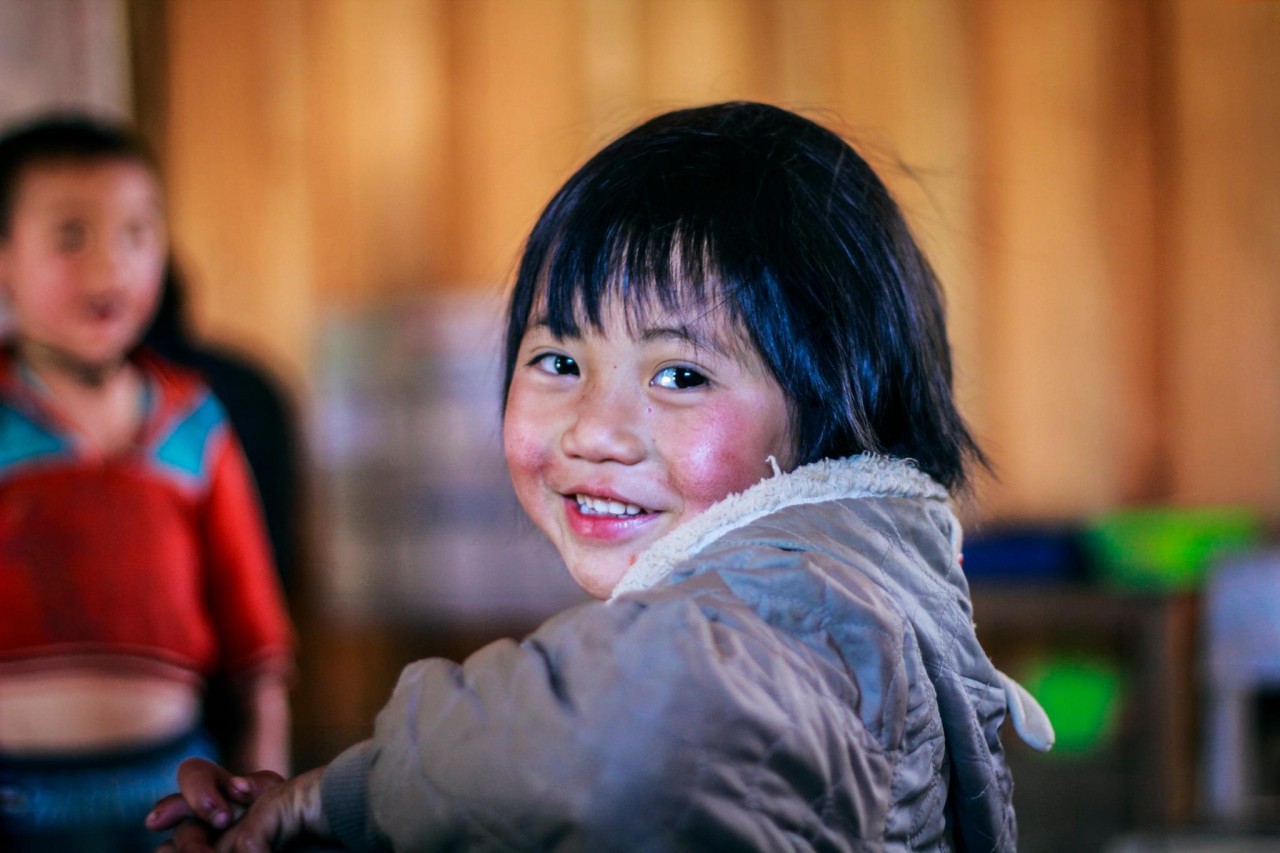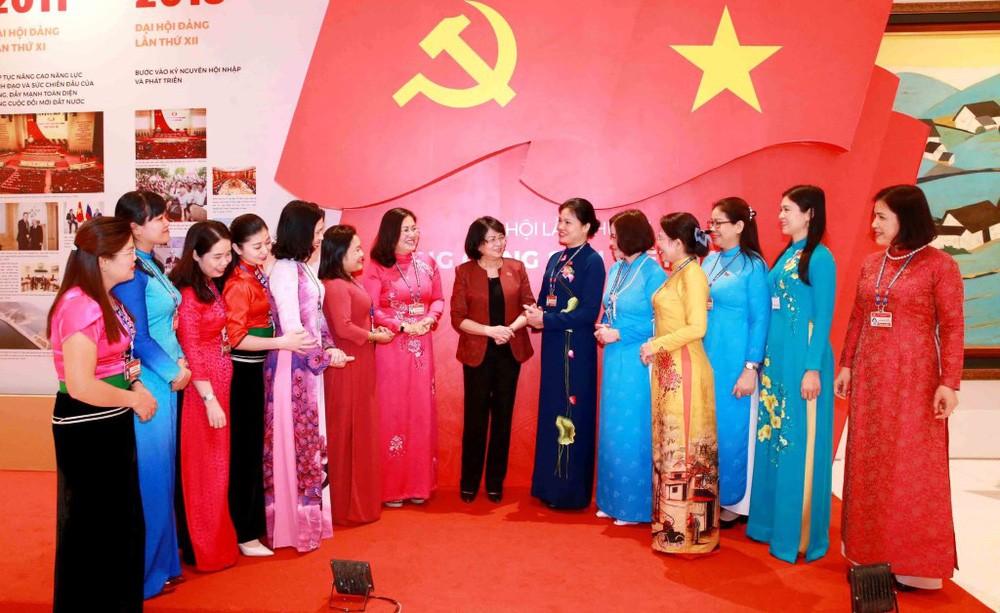
Implementing Universal Periodic Review third cycle recommendations: No one is left behind
Latest
 |
| Viet Nam has recorded many impressive achievements in ensuring and promoting human rights in the fields of labor, society and gender equality. (Photo: Nguyen Hong) |
With a consistent policy on human rights protection and promotion, Viet Nam is making efforts to fully and strongly implement the recommendations under the Universal Periodic Review (UPR) third cycle of the United Nations Human Rights Council (UN).
This is also a focal step to implement the vision, policy and strategy for the comprehensive development of Viet Nam as determined in the 13th National Party Congress under the spirit of leaving no one behind.
Since January 2019 when Viet Nam officially accepted 241 recommendations in the UPR third cycle, the country has been implementing these recommendations in a synchronous and comprehensive manner, thus making significant progress. Although only halfway through the UPR third cycle, Viet Nam has recorded various impressive achievements compared to other countries in the region in ensuring and promoting human rights in the fields of labor, society and gender equality.
Completing legal policies and implementing workers' rights
Over the past years, Viet Nam has continuously made efforts to improve the legal framework and national labor policy.
After many amendments and supplements, the Labor Code 2019 of Viet Nam has basically compatible with the conventions of the International Labor Organization (ILO) and the United Nations Human Rights Council to which Viet Nam has acceded.
Besides that, Viet Nam continues the process of joining international conventions to ensure workers' rights. Specifically, Viet Nam plans to ratify a dossier of accession to ILO Convention No. 87 on Freedom of Association and Protection of the Right to Organize, prepares to join the United Nations International Convention on the Protection of the Rights of all migrant workers and their family members (CRMW)…
All of these contribute to the joint effort to perfect the national legal system and institutions for ensuring and promoting human rights, bringing Viet Nam closer to international standards.
Poverty alleviation and social security
With the participation of the whole political system and the synchronous and effective implementation, Viet Nam's poverty reduction and social security work in recent years has achieved several outstanding achievements in various aspects.
The National Target Program for sustainable poverty reduction in the 2016-2020 period has gained positive results since the poverty rate of the whole country is about 2.75%, the average reduction in 5 years is about 1.43%/year; the rate of poor households in poor districts is about 24%, the average rate in 5 years decreased 5.65%/year.
Continuing to carry out the mission of bringing a prosperous life for the people, the National Target Program on sustainable poverty reduction and social security in the 2021-2030 period has oriented on multi-dimensional, inclusive and sustainable poverty reduction; supporting the poor to rise beyond the minimum standard of living in a sustainable manner, providing fully access to basic social services, improving the quality of life, and eliminating poverty in poor areas.
At the same time, the Program also concentrates on improving the quality of human resources, creating jobs for the poor and people living in poor areas; reducing social inequality, ensuring harmony between economic development and sustainable social security.
According to Mr. Nguyen Manh Cuong, Director of the Department of International Cooperation, Ministry of Labour, Invalids and Social Affairs (MOLISA), in order to implement the UPR recommendations, the Ministry has submitted to the Prime Minister for promulgation a Decision stipulating the process of reviewing and identifying poor households, near-poor households and households with average living standards for the 2021-2025 period.
Along with that, the MOLISA also directs, urges and supervises to ensure effective implementation; directs non-stop research, amendment and supplement of multi-dimensional poverty reduction policies (including employment, health care, education, housing, clean water and sanitation, information) towards creating jobs and sustainable income.
Additionally, the MOLISA has developed a mechanism to create every favorable condition for the development and duplication of poverty reduction models and initiatives; implementing policies and projects on clean water and environmental sanitation in rural areas.
The Ministry also guides and directs the effective implementation of investment and poverty reduction policies for poor districts and communes with special difficulties in coastal areas and islands; capacity building for grassroots officials and people in extremely difficult communes, villages and hamlets in ethnic minority and mountainous areas.
The MOLISA also actively participates in and shares Viet Nam's sustainable poverty reduction experiences at international conferences, seminars and forums.
 |
| The National Strategy on Gender Equality for the 2021-2030 period aims to further narrow the gender gap, create conditions and opportunities for women and men to participate and enjoy equality in all fields of life. (Photo: VNA) |
Gender equality
The implementation of Viet Nam’s Law on Gender Equality and the National Strategy on Gender Equality for the 2011-2020 period has brought about essential changes, laying a solid foundation for activities to promote gender equality in the country in the next period.
So far, gender equality has become an integral part of socio-economic development strategy, creating positive changes at both national level and ministries, sectors and localities level.
On December 28, 2020, the Prime Minister issued Decision No. 2282/QD-TTg approving the Program "Strengthening equal participation of women in leadership and management positions at policy-making levels for the period 2021-2030".
The objective of the Program is to ensure the equal participation of women in leadership and management positions at policy-making levels in order to promote the potential and creativity of women, towards realizing their commitments to achieve the sustainable development goals of gender equality and women's empowerment.
On March 3, 2021, the Government issued Resolution No. 28/NQ-CP on the National Strategy on Gender Equality for the 2021-2030 period. The strategy aims to continue narrowing the gender gap, creating conditions and opportunities for women and men to participate and enjoy equal benefits in all areas of social life, contributing to the sustainable development of Viet Nam.
According to Mr. Nguyen Manh Cuong, in order to implement UPR recommendations on gender equality, the MOLISA has strengthened the implementation of legal provisions on labor and employment; well implemented the National Strategy on Gender Equality for the 2021-2030 period, which focuses on gender equality goals in the political, economic and labor sectors.
Specifically, the MOLISA has developed a Decree on sanctioning of administrative violations of gender equality; implementing the National Strategy on Gender Equality for the 2021-2030 period, focusing on the Goal of ensuring gender equality in family life as well as preventing and responding to gender-based violence; effectively implementing the Program on prevention and response to gender-based violence in the 2021-2025 period.
Communication, dissemination and education to raise awareness of gender equality have become the main focus at all levels and sectors and have been continuously improved in both quantity and quality.
Through many forms of communication and education on gender equality, it has helped agencies, organizations, desk officials, employees and people clearly see the risks, reality and impacts of gender inequality, thereby gaining a proper awareness of the importance of gender equality for community and social development.
Furthermore, the Law on Gender Equality continues to be studied and revised to improve the legal system on gender equality.
It can be said that the implementation of the UPR third cycle recommendations is also consistent with the guidelines and policies of the Party as determined in the Document of the 13th National Party Congress, reflecting Viet Nam's consistent commitments and efforts in ensuring human rights, especially vulnerable groups in the context of the Covid-19 pandemic.
The practice of implementing the UPR recommendations in the third cycle over the past time has shown very clearly that the entire people have enjoyed human rights, thereby demonstrating humanity in the policies of the Party and State with a consistent goal of "No one is left behind".





















